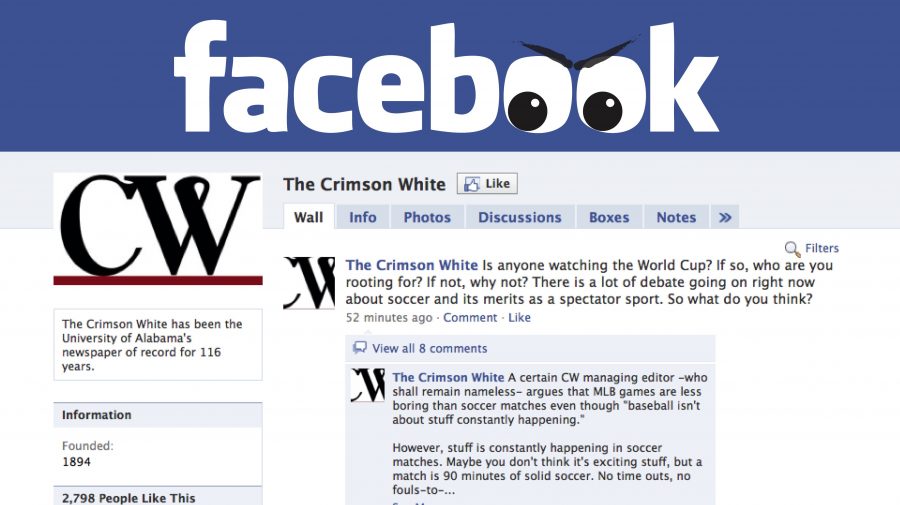Facebook, a social networking website many UA students use, occasionally changes its privacy settings, erasing users’ personal privacy preferences. This can make information available that students may not have wanted to release to potential employers, who sometimes use Facebook as a means of character judgment.
“The problem with the privacy settings is that every time they change the settings, they automatically make it default so that you have the least amount of privacy,” said Karla Gower, a professor in the College of Communication and Information Sciences and director of The Plank Center.
“They don’t tell people that they change the settings, so it puts [it on] the user to go in and make the changes,” she said. “And if you don’t go in very often, and you don’t realize that they have changed, then you are opening yourself up.”
Millions of users are unknowingly broadcasting all of their status updates to the entire world. On the website youropenbook.org, anyone can search through public Facebook profiles and find revealing information about unknowing Facebook users.
Stephanie Ballard, a sophomore majoring in economics, is a student director of a summer program at the Capstone. When choosing counselors for the program, Ballard said, Facebook played an important role in the selection process.
“The first thing that we did before even doing interviews was look at Facebook pages,” she said.
In addition to a potential employee’s Facebook page, employers may look at friends’ Facebook pages.
“It’s not only what they are seeing about you, but also what your friends are saying, even about themselves,” Gower said. “It’s sort of guilt by association. If they are talking about partying and drug use, its makes you look like you are bad, regardless of what you are actually doing.”
Some students said they don’t feel that it’s fair for potential employers to make judgments based on their Facebook pages.
“I feel like people should not make a detailed opinion based on someone’s Facebook profile,” said Josh Gray, a junior majoring in international relations and political science. “It is the company’s choice to make this decision, but I honestly feel like they shouldn’t make opinions based on your profile.”
However, some Facebook users do realize the importance of keeping certain information private.
“Privacy settings are necessary for [it] to work for everyone,” Gray said. “The settings are in place because people need them to be there.”
George Daniels, a journalism professor who also teaches seminars on social media outside of the University, stressed the importance of being social-media savvy. He said he feels that it’s important for students to understand privacy settings in order to build online networks.
While Facebook is one networking website, there are other social networking websites such as Twitter and LinkedIn.
“Using LinkedIn is important because we must look at social media beyond Facebook, and LinkedIn is a good way to funnel in potential employers,” Daniels said.
Regardless of the social networking site, it’s important to maintain a good image, Gower said. She suggests Googling oneself every so often to ensure a consistent online image in every social media venue.
“Be careful and remember that everyone can see this,” she said. “This is not just sharing what you did on Saturday night with your friends; you are sharing it with a much wider audience. It stays forever and it could potentially come back to haunt you.”








